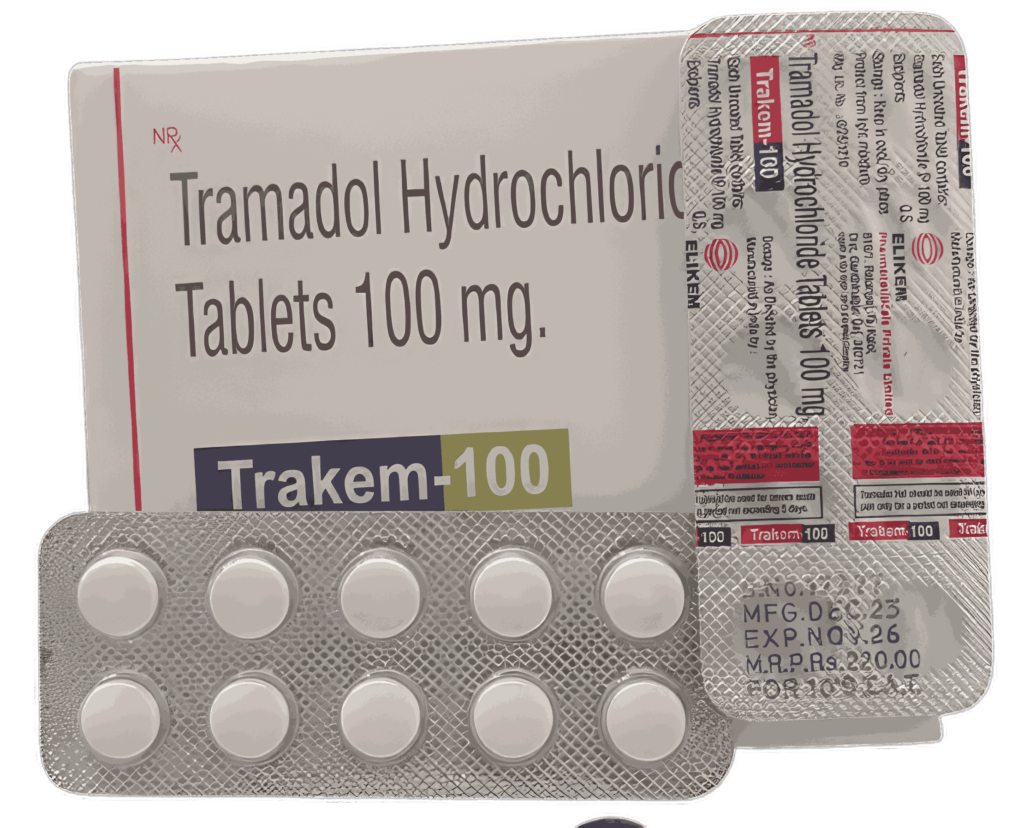Imagine this: You’re scrolling through social media, bombarded by ads for dazzling teeth whitening kits and instant smile makeovers. It’s easy to fall into the trap of believing that a healthy smile is merely a bright, aesthetically pleasing one. We often prioritize the visual appeal, postponing that routine dentist visit because, well, our teeth *look* fine. But what if we told you that skipping those regular appointments could be silently jeopardizing not just your oral health, but your entire body? Understanding the true importance of dental checkups extends far beyond a pearly white grin; it’s a foundational pillar of your overall well-being.
The Hidden Risks of Skipping Regular Dental Checkups
Many individuals unknowingly underestimate the profound value of consistent dental care. The perception often narrows down to believing that dental visits are solely for addressing pain, cavities, or cosmetic enhancements. This limited viewpoint, however, overlooks a crucial reality: your mouth is a window to your general health.
Why We Postpone: Common Barriers to Prioritizing Oral Health
The reasons for delaying or skipping dental checkups are varied and often deeply personal:
- Dental Anxiety: For many, the fear of drills, needles, or discomfort is a powerful deterrent.
- Cost Concerns: Perceived high costs, even with insurance, can make regular visits seem like an unaffordable luxury.
- Lack of Awareness: A significant portion of the population is simply unaware of the extensive health implications tied to oral hygiene beyond cavities.
- Time Constraints: Busy schedules can make it difficult to fit in a preventative appointment when no immediate pain or problem exists.
The Unseen Consequences: Beyond a Toothache
When regular checkups are neglected, the impacts can range from escalating oral issues to severe systemic health problems:
- Oral Health Deterioration: Small cavities can become large, requiring extensive fillings or root canals. Gum inflammation (gingivitis) can progress to periodontitis, leading to bone loss and tooth loss. Infections can spread, causing abscesses and severe pain.
- Systemic Health Impacts: Perhaps the most critical, yet often overlooked, consequence is the direct link between oral health and chronic diseases. The Centers for Disease Control and Prevention (CDC) highlights that oral health is integral to overall health. Poor oral hygiene can exacerbate or increase the risk of conditions like cardiovascular disease, diabetes, respiratory infections, and even some cancers. The inflammation and bacteria in your mouth don’t stay confined; they can enter the bloodstream and affect other parts of your body.
- Financial Burden: Procrastination often leads to more complex and expensive treatments down the line. A small filling today is significantly cheaper than a root canal, crown, or implant in the future.
- Diminished Quality of Life: Chronic pain, difficulty eating, bad breath, and self-consciousness about one’s smile can severely impact mental health, social interactions, and overall quality of life.

A Silent Threat: The Oral-Systemic Link
The connection between your mouth and the rest of your body, known as the oral-systemic link, is a cornerstone of modern preventive medicine. Chronic inflammation from conditions like periodontitis releases inflammatory mediators into your bloodstream. These substances can contribute to hardening of the arteries (atherosclerosis), a major risk factor for heart attacks and strokes. For individuals with diabetes, gum disease can make blood sugar control more difficult, creating a vicious cycle. Moreover, oral bacteria can be aspirated into the lungs, increasing the risk of pneumonia, especially in older adults or those with compromised immune systems.
According to the Centers for Disease Control and Prevention (CDC), “Oral health conditions affect an individual’s overall health and well-being, leading to pain, discomfort, and even serious health issues.” They specifically mention links between gum disease and conditions like heart disease, stroke, and diabetes, underscoring the critical role of maintaining good oral hygiene and regular professional care to mitigate these risks. (Centers for Disease Control and Prevention. (2023, November 2). *Oral Health Conditions.* Retrieved from https://www.cdc.gov/oralhealth/conditions/index.html)
Beyond the Smile: What Your Dentist Really Looks For
A comprehensive dental checkup goes far beyond a quick glance at your teeth for cavities. It’s a thorough examination designed to assess the entirety of your oral cavity and often reveal insights into your overall health.
During a typical visit, your dentist and hygienist are meticulously checking for:
- Cavities and Tooth Decay: Identifying and addressing early signs of decay before they become painful or require extensive treatment.
- Gum Disease (Gingivitis & Periodontitis): Measuring gum pockets, checking for bleeding, inflammation, and bone loss, which are indicators of gum health.
- Plaque and Tartar Buildup: Removing hardened plaque (calculus or tartar) that cannot be removed by brushing and flossing alone.
- Oral Cancer Screening: Visually and manually examining your lips, tongue, throat, and soft tissues for any abnormalities, lesions, or lumps that could indicate oral cancer. Early detection is crucial for successful treatment.
- TMJ (Temporomandibular Joint) Disorders: Assessing your jaw joint for clicking, popping, pain, or difficulty moving, which can indicate TMJ issues often linked to stress or teeth grinding.
- Bite Issues and Teeth Grinding (Bruxism): Checking for wear patterns on teeth, which can indicate grinding or clenching, leading to headaches, jaw pain, and tooth damage.
- Signs of Systemic Diseases: Your mouth can show early signs of various systemic conditions, including diabetes, Crohn’s disease, anemia, and even certain autoimmune disorders.

The Early Warning System: Detecting Oral Cancer
One of the most vital, yet often understated, aspects of a dental checkup is the oral cancer screening. The American Dental Association (ADA) emphasizes that early detection significantly improves treatment outcomes for oral cancers. Your dentist is trained to spot subtle changes in your mouth, such as persistent sores, red or white patches, or unusual lumps, which might go unnoticed by you. These screenings are quick, painless, and potentially life-saving. (American Dental Association (ADA). (2023). *Oral Cancer.* Retrieved from https://www.ada.org/resources/research/science-and-research-institute/oral-health-topics/oral-cancer)
Real Stories, Real Consequences: The Impact of Neglect
Personal experiences often highlight the critical need for proactive dental care. These scenarios, though fictional, are based on common patient experiences that underscore the importance of dental checkups.
Maria’s Migraines: A Case of Undiagnosed Bruxism
Maria, a busy marketing manager in her late 30s, had always considered her sporadic headaches and jaw pain to be stress-related. She’d faithfully whitened her teeth but rarely saw the dentist unless a tooth ached. During a rare routine checkup at Dr. Lee’s office, prompted by a persistent dull ache in her back molar, Dr. Lee noticed something more. “Maria, your back teeth show significant signs of wear, almost flattened,” Dr. Lee observed, pointing to her molars. “And your jaw muscles feel incredibly tight. It looks like you’re grinding your teeth, likely at night.” Maria was shocked. Dr. Lee explained that this condition, bruxism, was a major contributor to her chronic headaches and jaw discomfort. A custom night guard and some stress management techniques were recommended. Within weeks, Maria’s migraines lessened, and her jaw pain significantly reduced. Her “simple” toothache led to the diagnosis of a much broader issue impacting her quality of life.
John’s Journey to Health: A Dentist’s Vigilance
John, a 55-year-old accountant, was generally healthy but hadn’t visited the dentist in five years. He finally made an appointment due to chronic bad breath and increasingly sensitive gums. During his examination, Dr. Elena Rodriguez, a general dentist with 20 years of practice in preventive care, noted severe gum inflammation and pockets, along with slow-healing sores. “Many of my patients are surprised when I explain how closely their oral health reflects their overall systemic condition,” Dr. Rodriguez shared. “I once had a patient, Mr. Henderson, whose persistent gum inflammation and slow-healing sores prompted me to suggest he consult his physician – he was diagnosed with undiagnosed Type 2 diabetes shortly after. It’s not just about cleaning teeth; it’s about being an integral part of their healthcare team.” Based on John’s symptoms, Dr. Rodriguez advised him to see his general physician, suggesting he mention the oral findings. Sure enough, subsequent blood tests revealed that John was pre-diabetic. The prompt referral from his dentist allowed him to make crucial lifestyle changes before his condition progressed further, illustrating how a dentist can truly be a first line of defense for systemic health issues.
Practical Strategies for Maximizing Your Dental Health
Taking control of your oral health involves a combination of professional care and diligent home practices. Here’s how to ensure you’re getting the most out of your dental health regimen.
Making Regular Dental Checkups a Priority
- Schedule Biannually: For most healthy adults, dental checkups and cleanings every six months are recommended. Your dentist might suggest more frequent visits if you have specific risk factors like gum disease or a history of extensive cavities.
- Choose Your Dental Team Wisely: Look for a dentist and hygienist who prioritize patient education, use modern techniques, and create a comfortable environment. Don’t hesitate to ask about their approach to preventive care.
- Conquer Dental Anxiety: If fear is a barrier, discuss it openly with your dental office. Many practices offer sedation options, calming amenities, or techniques like guided imagery and deep breathing to help ease anxiety. Understanding the procedures can also help.
- Plan Financially: Explore dental insurance options, inquire about payment plans, or look for community dental clinics that offer services on a sliding scale. Investing in preventive care now saves significantly more in the long run.
Your Role in Daily Oral Care: The Foundation of Health
While professional cleanings are vital, your daily habits are the bedrock of good oral health. The Mayo Clinic emphasizes a consistent routine: (Mayo Clinic. (2023, March 15). *Oral hygiene: Best practices.* Retrieved from https://www.mayoclinic.org/healthy-lifestyle/adult-health/in-depth/dental-health/art-20047475)
- Brush Twice Daily: Use a soft-bristled toothbrush and fluoride toothpaste. Brush for at least two minutes, covering all surfaces of your teeth and your tongue.
- Floss Daily: Flossing removes food particles and plaque from between your teeth and under the gumline, areas your toothbrush can’t reach effectively.
- Consider Mouthwash: Therapeutic mouthwashes can help reduce plaque and gingivitis, but they are not a substitute for brushing and flossing.
- Limit Sugary and Acidic Foods/Drinks: These contribute significantly to tooth decay and erosion. Rinse your mouth with water after consuming them.
- Avoid Tobacco Products: Smoking and chewing tobacco dramatically increase your risk of gum disease, oral cancer, and other oral health issues.
What Few People Tell You: Counterintuitive Insights About Oral Health
Beyond the well-known advice, there are several lesser-known facts and common misconceptions that can impact your oral health strategy:
- Brushing Harder Isn’t Better: Many believe vigorous brushing equals cleaner teeth. In reality, brushing too hard can erode enamel, damage gums, and lead to sensitivity and gum recession. Gentle, thorough brushing is key.
- Flossing Isn’t Just for Trapped Food: While it does remove food particles, the primary benefit of flossing is disrupting and removing the sticky plaque film that accumulates along the gum line, preventing gum disease. Many skip it if they don’t see visible food debris.
- Your Mouth Can Reveal Stress Levels: Beyond obvious signs like teeth grinding, stress can manifest in recurrent canker sores, cold sores, or even contribute to gum inflammation due to a weakened immune response.
- Acid Erosion is a Silent Killer: It’s not just sugar causing cavities. Acidic foods and drinks (like sodas, fruit juices, and even healthy citrus fruits) can slowly erode tooth enamel, making teeth more susceptible to decay and sensitivity, even if you brush well. This damage is often less noticeable until it’s significant.
- Dentists Can Spot Nutritional Deficiencies: Changes in gum tissue, tongue appearance, or specific oral lesions can be early indicators of vitamin deficiencies (like B12, iron, or Vitamin C) or even underlying autoimmune diseases. Your dentist might be the first healthcare professional to suggest a deeper medical investigation based on oral signs.
Embracing a Holistic View of Your Well-being
The journey to optimal health is holistic, and your oral health is an inseparable part of that intricate web. Prioritizing the importance of dental checkups isn’t about vanity; it’s about proactive healthcare, preventing systemic diseases, and ensuring a higher quality of life. By understanding the profound connections between your mouth and your body, you empower yourself to make informed decisions that benefit every aspect of your health.
Take charge of your health today. Schedule your next comprehensive dental checkup and invest in your complete well-being.
***
Author Bio
Dr. Sofia Mendes, DMD, MPH is a distinguished public health dentist with over 15 years of experience focusing on preventive care and community oral health initiatives. Holding a Doctor of Dental Medicine from the University of Pennsylvania and a Master of Public Health from Johns Hopkins University, Dr. Mendes is passionate about educating the public on the critical link between oral and systemic health. She has published numerous articles on health disparities and access to dental care, advocating for a holistic approach to patient well-being. Her expertise lies in translating complex scientific information into actionable advice, empowering individuals to take proactive steps towards a healthier life.





